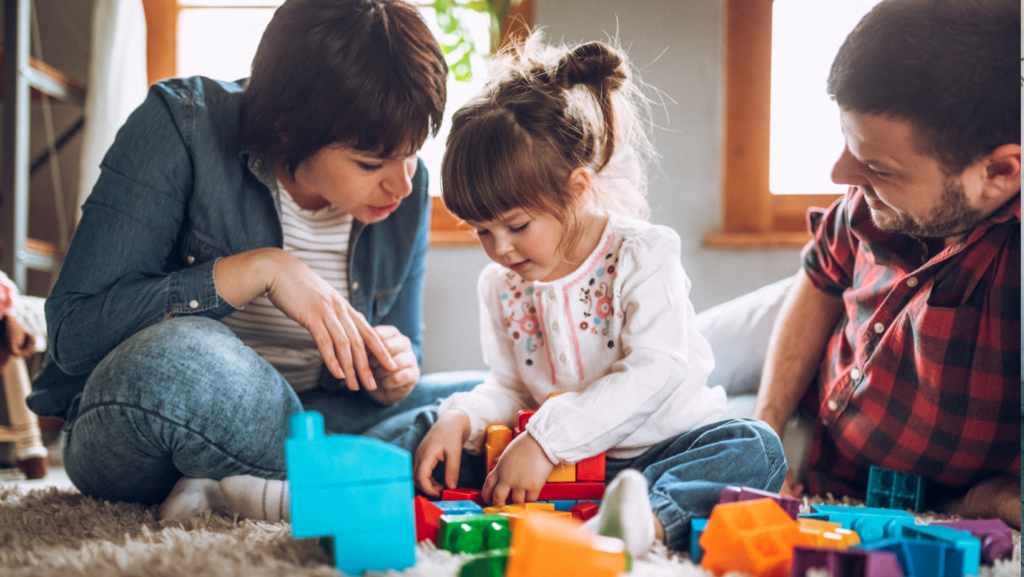”
Key Takeaways
- Comprehensive Parenting Strategies: The Coursera Everyday Parenting course offers practical, evidence-based methods designed to help parents address common challenges and improve their parenting skills.
- Inclusive Learning for All: This course caters to a diverse audience, including new, experienced, expectant parents, caregivers, and educators, providing relevant tools for each stage of parenting.
- Focus on Communication and Emotional Intelligence: Participants learn effective communication techniques and how to enhance emotional awareness, fostering healthier family dynamics.
- Real-Life Application: Engaging with real-world scenarios prepares parents to tackle everyday situations with confidence and effective problem-solving skills.
- Accessible and Interactive Experience: The course features a user-friendly interface and an interactive learning environment, making it easy for parents to navigate the content and connect with fellow learners.
- Supportive Community Engagement: An active community forum offers resources and peer support, enhancing the overall learning experience and encouraging collaboration among participants.
In today’s fast-paced world, parenting can feel overwhelming. With countless resources available, finding the right guidance is crucial. Coursera’s Everyday Parenting course offers a fresh perspective on nurturing children, blending expert insights with practical advice to tackle everyday challenges.
This course caters to parents at all stages, whether they’re new to the journey or looking to refine their skills. By focusing on real-life scenarios and evidence-based strategies, it empowers parents to create a supportive environment for their kids. As families navigate the complexities of modern life, this course stands out as a valuable tool for fostering healthy relationships and effective communication.
Coursera Everyday Parenting
 Coursera’s Everyday Parenting course equips parents with essential tools to navigate modern parenting challenges. The course integrates expert insights and practical advice to foster a nurturing environment for children.
Coursera’s Everyday Parenting course equips parents with essential tools to navigate modern parenting challenges. The course integrates expert insights and practical advice to foster a nurturing environment for children.
The course aims to achieve several key objectives:
- Promote effective communication: Parents learn to communicate clearly, fostering understanding within their families.
- Provide evidence-based strategies: Participants explore research-backed methods that address common parenting challenges.
- Enhance emotional intelligence: The curriculum focuses on developing emotional awareness in parents and children.
- Build strong relationships: The course emphasizes techniques for cultivating healthy, supportive family dynamics.
- Prepare for real-life scenarios: Participants engage with practical examples, enhancing their problem-solving skills in everyday situations.
- New parents: Individuals navigating early parenting stages benefit from foundational knowledge and skills.
- Experienced parents: Those seeking to refine their approaches gain insights into evolving parenting practices.
- Expectant parents: Expecting individuals acquire tools to prepare for upcoming challenges.
- Caregivers: Non-parents involved in child care receive valuable guidance on effective interactions with children.
- Educators: Teachers and childcare professionals enhance their understanding of parenting dynamics to support families better.
Course Content Breakdown
The Everyday Parenting course on Coursera delivers a comprehensive exploration of parenting strategies and insights. This section details the course’s structure and key takeaways.
Module Highlights
- Understanding Child Development: Examines stages of development and their implications for parenting. Covers milestones from infancy to adolescence.
- Effective Communication: Focuses on methods to improve dialogue with children. Includes techniques for active listening and expressing feelings.
- Emotional Intelligence: Discusses the importance of recognizing and managing emotions. Provides tools for parents to help children understand their feelings.
- Discipline Strategies: Reviews evidence-based methods for setting boundaries. Addresses differences between discipline and punishment.
- Fostering Resilience: Encourages building a child’s ability to cope with challenges. Includes strategies to nurture problem-solving skills.
- Supporting Academic Success: Provides tips for creating a supportive learning environment. Discusses the role of parental involvement in education.
- Importance of a Supportive Environment: A positive home atmosphere significantly influences a child’s development and well-being.
- Active Listening Techniques: Engaging children through attentive listening fosters trust and open communication.
- Balancing Authority and Empathy: Effective parenting combines authoritative practices with empathetic understanding of children’s needs.
- Recognition of Emotional Signals: Parents who identify emotional cues can address issues before they escalate, promoting healthier interactions.
- Real-Life Application: Preparing for everyday scenarios equips parents with the confidence and skills to handle various challenges.
Instructor Credentials

The instructors leading the Everyday Parenting course on Coursera provide a wealth of knowledge and experience, ensuring effective guidance for parents. Instructors possess advanced degrees in psychology, child development, and education. Their academic backgrounds contribute to a deep understanding of parenting theories and child psychology. Many instructors hold professional certifications, reflecting their expertise in family dynamics and emotional learning. This combination of education and experience equips them to offer evidence-based strategies and practical advice.
Instructors employ an interactive teaching style that encourages active participation from learners. They incorporate real-life scenarios, case studies, and engaging activities to facilitate understanding. By fostering a supportive environment, instructors promote open dialogue among participants, allowing for a rich exchange of ideas. Clear communication and relatable examples enhance the learning experience, ensuring parents can effectively apply the concepts in their daily lives.
User Experience
The Everyday Parenting course on Coursera offers a user-friendly interface, ensuring that parents can easily navigate through the content. Features such as clear modules, intuitive menus, and accessibility options enhance the overall experience for diverse learners.
Navigation and Accessibility
Navigation within the course is straightforward. Users can quickly locate different modules and resources through a well-organized layout. Each module includes concise descriptions, allowing participants to understand the content at a glance. Accessibility features cater to various learning needs, with options for video captions and audio descriptions ensuring inclusivity for all users. Mobile responsiveness enables access from smartphones and tablets, accommodating parents’ busy schedules.
Community and Support
An active community forum supports learners as they progress through the course. Participants can share experiences, ask questions, and provide feedback, fostering a collaborative environment. This community engagement enhances the learning experience, as parents connect with peers facing similar challenges. Additionally, support resources, such as FAQs and instructional guides, are readily available, ensuring participants receive assistance when needed. The combination of community collaboration and available support resources creates a rich learning environment that encourages personal growth and connection among parents.
Coursera’s Everyday Parenting course stands out as a valuable resource for parents navigating the complexities of modern family life. With its expert-led modules and practical strategies, it empowers parents to foster strong relationships and effective communication. The interactive format and supportive community enhance the learning experience, making it easier for parents to apply insights in real-world situations.
By investing time in this course, parents can gain confidence in their abilities and create a nurturing environment for their children. The skills acquired not only benefit the parent-child dynamic but also contribute to the overall well-being of the family. Embracing such educational opportunities can



